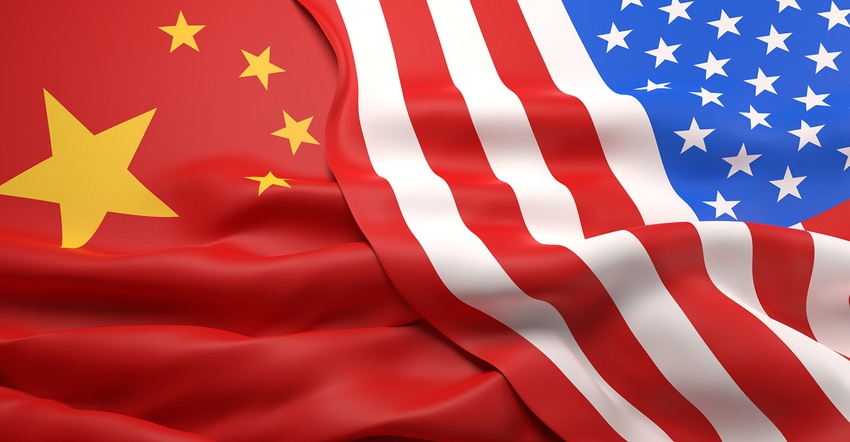China Investment in US Battery Plants Not All Smooth Sailing
Gotion in Michigan and Microvast in Kentucky both face headwinds—with different conclusions at the Federal level.

Since the Inflation Reduction Act (IRA) and Infrastructure Act were signed into law, international battery companies seem to have been elbowing each other in their rush to sign agreements with US states to build facilities here and enable their products to be considered domestically produced. Even before last year’s legislation was enacted, individual states have long courted global battery and EV companies to invest in domestic production, dangling the promises of tax incentives and infrastructure improvements while hoping for an accompanying influx of new jobs.
China-spawned companies are not the least of those which have been courted here, and as our ongoing coverage of the US battery plant build spree shows, it’s mostly been smooth sailing: scroll through our coverage and it seems an endless stream of happy local politicians and Chinese executives posing at ribbon-cutting, groundbreaking, and pact-signing ceremonies.
But after the handshakes and camera flashes, the sailing isn’t always smooth. And some agreements flounder.
Here are two recent examples of China-US battery investment plans hitting headwinds: Gotion’s plan for a facility in Northern Michigan and Microvast’s hopes for a plant in Southwestern Kentucky.
Gotion plans polarize Big Rapids, MI
On October 5, 2022, Michigan Governor Gretchen Whitmer and the Michigan Economic Development Corporation (MEDC) announced Michigan Strategic Fund (MSF) support for global battery company Gotion’s proposal to build a $2.3 billion electric vehicle component factory near the town of Big Rapids.
Proponents of the Gotion deal highlighted the 2,350 jobs the project is expected to create, saying the state’s incentive investment is worth the hiring and spinoff business likely to result from a large-scale EV project.
But, as Battery Technology has reported, the news became polarizing to the Big Rapids community, particularly in the runup to the Michigan gubernatorial election last November, when Whitmer’s opponent, Republican Todor Dixon made the state’s support a campaign issue. The major objection: Gotion Inc., though US-based, is owned by Gotion High-Tech, an organization headquartered in China, within an environment where companies are experiencing growing expectations to align with the Chinese Communist Party (CCP). Detractors argue that Michigan should avoid the potential risks associated with permitting a battery company connected to China to establish a presence in the state, particularly in the crucial domain of electric vehicles.
Other objections came from the Democratic side of the legislative aisle, raising environmental concerns—but the loudest objections have been about Communist control. In April, Dixon—now a conservative podcaster, tweeted, “Michigan is handing $715M taxpayer dollars to Gotion, a company with clearly documented ties to the Chinese Communist Party. Why are we allowing the enemy to own land and set up shop in the center of the country?”
The controversy didn’t subside after the November election (in which Whitmer soundly defeated Dixon), and continued through late Spring. But Gotion Inc. has fought back. First, it argued strongly for the State Senate Appropriations Committee to approve the MSF funding—which it did, by a tight 10–9 vote in April.
And the company announced in mid-June that the Committee on Foreign Investment in the United States (CFIUS)—the federal committee charged with determining national security risks from foreign investments—found nothing to object to in the project’s plans.
“We voluntarily submitted all the needed documents to the U.S. Department of Treasury Committee on Foreign Investment in the U.S. (CFIUS) to be transparent and accountable and received the response that it is not a covered transaction,” Chuck Thelen, vice president of Gotion Inc. – North American Manufacturing, stated. Gotion is going forward with its plans.
Microvast’s Hopkinsville, KY EV battery plant now in doubt
In Kentucky, Microvast’s plans haven’t fared so well. On March 30, Governor Andy Beshear made an announcement regarding Microvast's plans to construct a plant in Hopkinsville, KY. This facility would utilize a patented process to manufacture polyaramid base film for lithium-ion batteries utilized in electric vehicles. The commencement of construction was anticipated for this year, with a projected completion date of March 2025.
However, the situation has changed, as a 100-acre industrial site within Hopkinsville's Commerce Park II is now available for sale once again. This occurred after the US Department of Energy discontinued a $200 million grant to Microvast Holdings Inc., a Texas-based company that intended to invest $504 million in establishing a battery technology plant, creating jobs for 562 workers.
Carter Hendricks, the executive director of the South Western Kentucky Economic Development Council, verified that the industrial site is no longer reserved for Microvast.
Criticism from Republican lawmakers has been directed towards Microvast and its CEO, Yang Wu, citing alleged connections to China. The Associated Press reported that negotiations with Microvast were indeed terminated, according to the office of Energy Secretary Jennifer Granholm.
“At a Senate Energy Committee hearing in February, Sen. John Barrasso, R-Wyo., questioned whether the planned grant to Microvast would benefit China. Barrasso cited a company filing with the Securities and Exchange Commission in which Microvast said it may not be able to protect its intellectual property rights in China,” AP reported. And Barrasso told Granholm in a May 1 letter that Wu had “bragged to Chinese media about Microvast’s strong ties to the People’s Republic of China.″
Responding to these allegations, Yang Wu, asserting his status as a US citizen, released a statement denying any improper associations with China. He stated, “Neither the Chinese government nor the Chinese Communist Party has any ownership in the company, nor do they control or influence company operations in any way."
Hendricks informed Hoptown Chronicle that local economic development officials are still in contact with Microvast while the company explores alternative avenues for financing.
Two companies, two states, and apparently headed to two different resolutions, as federal support is pulled back for Microvast and left intact for Gotion. Business and political leaders in two countries will certainly be watching to see what next develops as the China portion of the US battery facilities building spree continues.
About the Author(s)
You May Also Like





